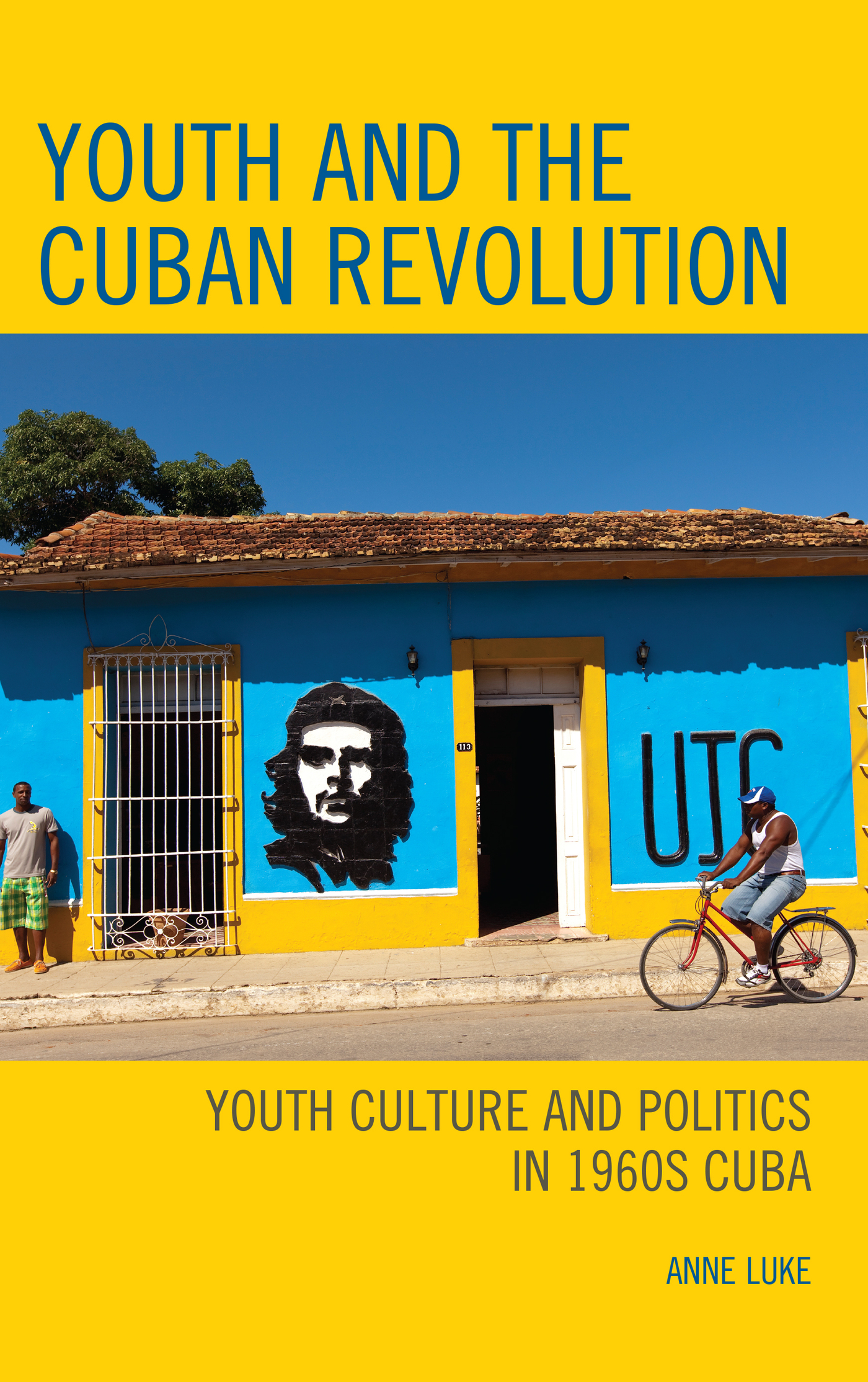Youth and the Cuban Revolution
Lexington Studies on Cuba
Series Editor: John M. Kirk, Dalhousie University
and Mervyn Bain, University of Aberdeen
This series will publish texts on all aspects of Cuba, focusing on the post-1959 period. It seeks to be truly interdisciplinary, with studies of all aspects of contemporary Cubafrom foreign policy to culture, sociology to economics. The series is particularly interested in broad, comprehensive topics (such as women in Cuba, economic challenges, human rights, the role of the media, etc.). All ideological positions are welcomed, with solid academic quality being the defining criterion. In exceptional circumstances edited collections will be considered, but the main focus is on high quality, original, and provocative monographs, and innovative scholarship.
Recent Titles in This Series
Cuba's Forgotten Decade: How the 1970s Shaped the Revolution, edited by
Emily J. Kirk, Anna Clayfield, Isabel Story
Everyday Adjustments in Havana: Economic Reforms, Mobility, and Emerging
Inequalities, by Hope Bastian
Cubas Gay Revolution: Normalizing Sexual Diversity Through a Health-Based
Approach, by Emily J. Kirk
Youth and the Cuban Revolution: Youth Culture and Politics in 1960s Cuba,
by Anne Luke
Youth and the Cuban Revolution
Youth Culture and Politics in 1960s Cuba
Anne Luke
LEXINGTON BOOKS
Lanham Boulder New York London
Published by Lexington Books
An imprint of The Rowman & Littlefield Publishing Group, Inc.
4501 Forbes Boulevard, Suite 200, Lanham, Maryland 20706
www.rowman.com
6 Tinworth Street, London SE11 5AL, United Kingdom
Copyright 2018 by The Rowman & Littlefield Publishing Group, Inc.
All rights reserved. No part of this book may be reproduced in any form or by any electronic or mechanical means, including information storage and retrieval systems, without written permission from the publisher, except by a reviewer who may quote passages in a review.
British Library Cataloguing in Publication Information Available
Library of Congress Cataloging-in-Publication Data Available
ISBN 978-1-4985-3206-8 (cloth : alk. paper)
ISBN 978-1-4985-3207-5 (electronic)
 TM The paper used in this publication meets the minimum requirements of American National Standard for Information Sciences Permanence of Paper for Printed Library Materials, ANSI/NISO Z39.48-1992.
TM The paper used in this publication meets the minimum requirements of American National Standard for Information Sciences Permanence of Paper for Printed Library Materials, ANSI/NISO Z39.48-1992.
Printed in the United States of America
Acknowledgments
When I began working on youth in Cuba back in 2000 I was, I suppose, young enough to be considered to belong to the category of youth myself. As the winds of time propel me toward that period which must be at least called adulthood, or even middle age, I am now a spectator on youth, trying as I may to see the world through my childrens or my students eyes. Was research into Cuba for me, in my late youth and as one colleague suggested to me, my own youth cultural response to life in the West? If it was, such an interest in youth globally and in distinction to the Global North has followed me out of my own youth, into further research and into my post-thesis life as a university lecturer. I must now reflect upon the many people over the years who have supported me with this research. For all this support I am deeply grateful, but any errors in this volume are entirely my own. I have a great debt of gratitude to my former doctoral supervisor Professor Antoni Kapcia who was instrumental in my maintenance of a diligent, questioning approach in my thesis days. Today his continued leadership of the Cuba Research Forum in the UK is crucial in keeping many a lone Cubanist like me, scattered throughout the disciplines of Higher Education in the UK, within the field that is Cuban Studies. My thanks also to Professor Jean Stubbs and Professor Paul Willis for their support during my doctoral days. In Cuba, Pablo Pacheco and Fernando Martnez Heredia, now both sadly deceased, were of great assistance, as were Luis Gmez, Jos Carlos Vsquez Lpez, Paula Ortz and Oscar Guzmn and family; and in the UK my thanks to my intellectual comrade-in-arms Dr. Katerina Gachevska. Lucky as I was then to have a professional translator in the family, my father Tom Luke assisted in the translations of the Spanish quotes in my original thesis, many of which remain in this book: I publish this in loving memory of him. Heartfelt thanks also to my mother Mary Luke for her unstinting support and help. My sister Nicola Thomas painstakingly helped me with editing and proofing this manuscript with incredible diligence and accuracy for which I am very grateful. Thanks also to Brian Hill and Eric Kuntzman at Lexington for their support and that essential quality of many an editorpatience.
Note that extracts of this work have been published previously in the following publications: extracts of chapter 2 appear in Luke, A. (2012) Creating a Quiet Majority? Youth and Young People in the Political Culture of the Cuban Revolution in Par Kumaraswami (ed.) Rethinking the Cuban Revolution Nationally and Regionally: Politics, Culture and Identity (Malden/Oxford: Blackwell/Wiley; Bulletin of Latin American Research (BLAR) Book Series), pp. 12743; extracts from chapters 4 and 7 can be found in Luke, A. (2013) Listening to Los Beatles: Being Young in 1960s Cuba in Anne Gorsuch and Diane Koenker (eds.) The Socialist Sixties: Crossing Borders in the Second World (Bloomington: University of Indiana Press); and sections of chapter 5 can be found in Luke, A. (2014) A Culture of Youth: Young People, Youth Organizations and Mass Participation in Cuba 195962 in Mauricio Font and Carlos Riob (eds.) Handbook of Cuban Literature, History and the Arts (Boulder: Paradigm).
Finally, my partner Glyn Hambrook has made every attempt, often successfully, to appear unperturbed on those many nights when I have felt the need, in the small hours, to discuss one or another aspect of this work with him; he has read and commented on this work in its entirety, and without his support I cannot imagine how I could have finally brought it to print. For his help I will be ever grateful; and to our children Abigail and Faye, I say this: I hope that one day you will understand that my love for Cuban studies, great though it is and which has taken me away from you on many an occasion, will never compete with my love for you.
Glossary of Abbreviations
AJR | Asociacin de Jvenes Rebeldes [Association of Young Rebels] |
CJC | Columnas Juveniles Centenarias [Centenary Youth Columns] |
DR | Directorio Revolucionario [Revolutionary Directorate] |
EIR | Escuelas de Instruccin Revolucionaria [Schools of Revolutionary Instruction] |
EOC | Educacin Obrero-campesina [Worker-peasant educational scheme] |
ER | Ejrcito Rebelde [Rebel Army] |
FAR | Fuerzas Armadas Revolucionarias [Revolutionary Armed Forces] |
FEU | Federacin de Estudiantes Universitarios [Federation of University Students] |
ICAIC | Instituto Cubano de Artes e Industrias Cinematogrficas [Cuban Institute of Cinematography] |
INDER | Instituto Nacional de Deportes Educacin Fsica y Recreacin [Institute of Sport, Physical Education and Leisure] |

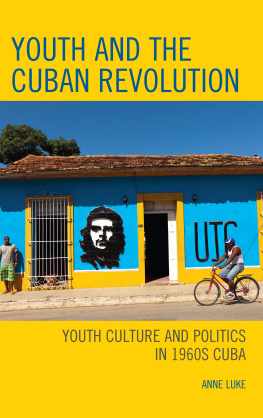
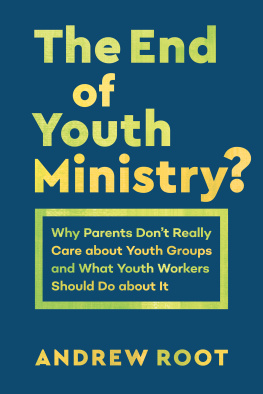
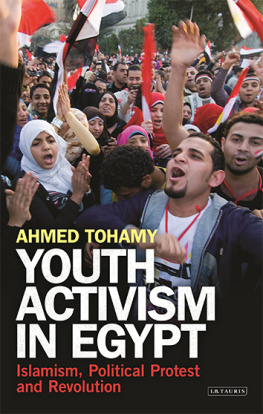
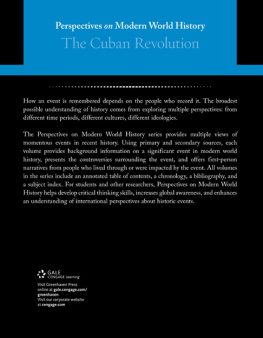
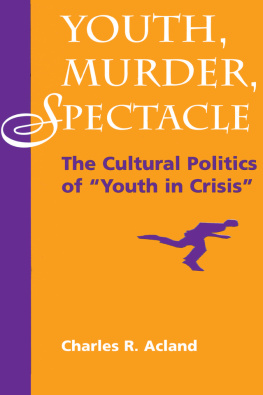
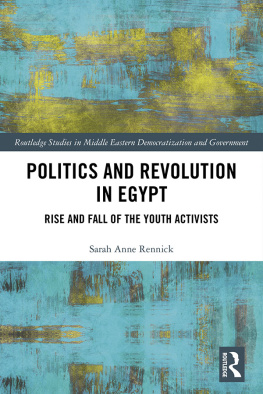

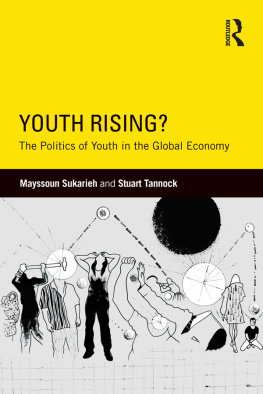

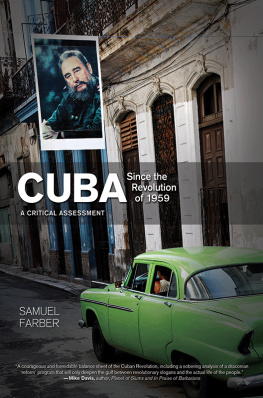
 TM The paper used in this publication meets the minimum requirements of American National Standard for Information Sciences Permanence of Paper for Printed Library Materials, ANSI/NISO Z39.48-1992.
TM The paper used in this publication meets the minimum requirements of American National Standard for Information Sciences Permanence of Paper for Printed Library Materials, ANSI/NISO Z39.48-1992.